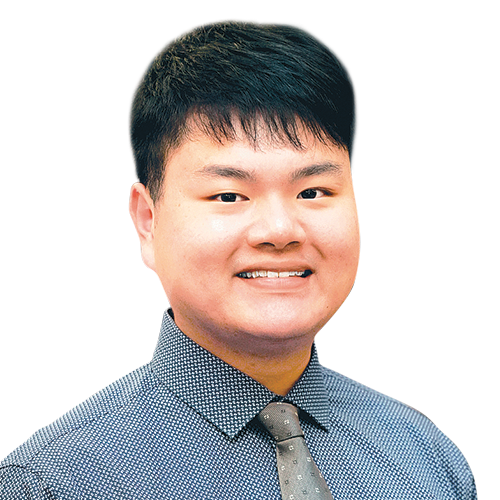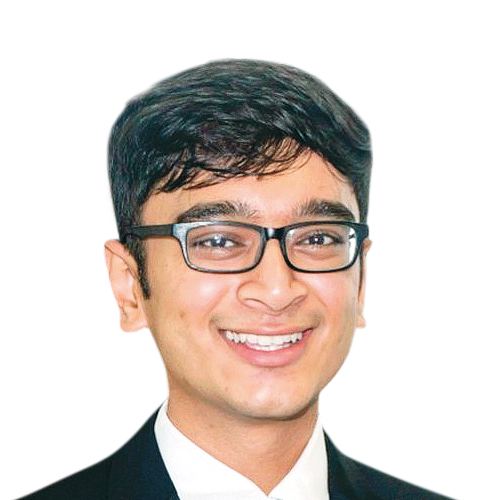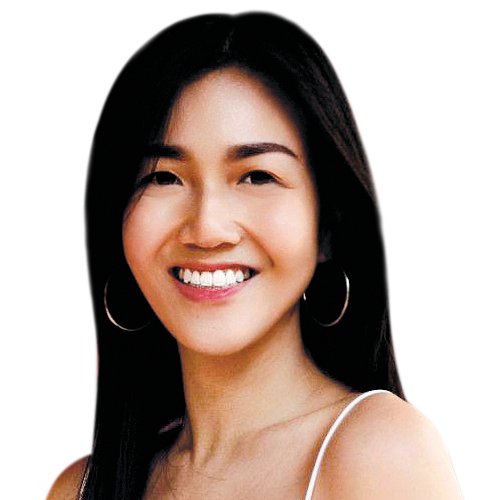Lessons From The Dream Factory
Alumni entrepreneurs from the NUS Overseas Colleges programme share the profound influence the experience has had on them.
A World of Possibilities
Since the pioneer batch of 14 NUS students headed to Silicon Valley in 2002 as part of a partnership with Stanford University, the NUS Overseas Colleges (NOC) programme has grown to more than 15 cities, from Shenzhen to Stockholm. Melding start-up internship with academic studies at partner universities, the programme is considered a rite of passage for aspiring entrepreneurs. Six NOC alumni share their experiences of the programme, and the insights gained from it.
OUR PANEL

Mr Ang Yi Shuan
(Engineering ’21)
Postgraduate at NUS Graduate Research Innovation Programme (GRIP)

Ms Cordillia Ann Tan Mei Yu
(Arts and Social Sciences ’21)
Director of Pitstop Tyres

Mr Dobariyapatel Hardik Kishor
(Engineering ’20)
Co-founder of Factorem

Mr Mohamad Shijudeen Bin Bajar Rahman
(Business ’20)
Co-founder of Carfix

Ms Toh Ann Cher
(Design and Environment ’19)
Co-founder of Homebase

Ms Yeoh Wanqing
(Arts and Social Sciences ’21)
Co-founder of Hatch
When did you learn of the NOC programme and what made you apply for it?
Toh Ann Cher: As Real Estate students, we didn’t get a lot of information on NOC, but I learned about it while I was in Year 2 and got interested because it was a year-long programme that allowed me to work and study at the same time. I have always been interested in the China market and decided to head to Beijing in September 2016 to get an immersive experience of its work culture. While my internship at Xiaomi didn’t quite relate to my course, it wasn’t difficult to convince my parents (that it would be a valuable experience) — though I didn’t tell them about it until two months before my departure! The fact that Tsinghua University is a highly-regarded institution was a saving grace.
Dobariyapatel Hardik Kishor: I saw university as a place to try things out to know what is right for me — NOC was one of those exploratory experiences. While I did think of starting my own business, I always figured I would first get myself a corporate job to build experience and credibility. However, joining NOC and working for a small company with three co-founders, who when in doubt might simply turn to Google for answers, changed my way of thinking altogether.
Ang Yi Shuan: I first learned about NOC as a Year 1 Computer Engineering student through a roadshow. I knew that I didn’t want to go into a corporate role upon graduation and joined NOC in 2020 to learn about the tech ecosystem in Shenzhen, see how companies there are driven by R&D, and learn the ins and outs of one of China’s most powerful manufacturing and tech clusters.
Cordillia Ann Tan Mei Yu: I am a Linguistics major and both my mother and I always thought I would become another “Ms Tan” in a school. Then, in the welcome week for Year 1 students, I attended an NOC information session. Under the impression that it was about internships — and not knowing what entrepreneurship was about — I asked for an internship and was given a posting within weeks. Thus began a crazy journey where I, even as an intern, ended up representing my company for roadshows in Korea and Australia. I went on to do the NOC programme in Shanghai from 2018 to 2019, where I was placed in the world’s largest accelerator venture capital investment company, and was sent for business meetings in Southeast Asia and Taiwan. I spent another three semesters in N-House (
ENterprise House, an entrepreneurship-themed residence managed by NOC) where I was a senior resident assistant. I also interned at BLOCK71 (NUS Enterprise’s tech ecosystem builder and global connector for the start-up community), so my NOC journey was very long! After graduation, I worked at blockchain accelerator Tribe, but have since left in view of starting my own business. It is the biggest decision I’ve ever made — and one that was influenced by my time with NOC.
Yeoh Wanqing: I heard about NOC during a talk, but never really prioritised it on my student chart as a Global Studies undergraduate. It was during my second year that I considered it: I was volunteering in a social enterprise that places young people into jobs, saw a lot of meaning in my work and wanted to continue doing this. In a quest to find a sustainable solution, I turned to entrepreneurship and joined NOC to find businesses with a strong social element. I went to Stockholm and the CEO of the company was an NOC Stockholm alumnus who tried to place me in situations where I would gather more knowledge and insights that were relevant to what I wanted to do.
Mohamad Shijudeen Bin Bajar Rahman: I had gone for an academic exchange in Year 3 and found living abroad really fun. So I thought I would try working abroad too, and chose New York as it was, to me, the coolest city. I only went for the NOC programme in Year 4, from 2018 to 2019. It was something that I did, in a way, for fun. I had always been interested in entrepreneurship, though it was just something at the back of my mind. Most Business students want to go into the finance industry after graduation, but the NOC experience changed my views, and I went on to start my own company.
What were the biggest challenges you faced?
The NOC experience changed my view of problem-solving: it taught me to take charge and just “do the right thing”.
Mr Mohamad Shijudeen Bin Bajar Rahman
Cordillia: Finding a place to stay within two weeks of landing in a new country was certainly challenging! Also, we had to juggle internship and academic requirements: attending our entrepreneurship classes, writing that idea journal, coming up with a 30-page business case, conceptualising our own mini start-up… It was a lot of stuff jam-packed into 11 months. Mapping out the modules to meet our Unrestricted Elective (UE) requirement was also a challenge. I managed to complete a Linguistics module at Fudan University.
Wanqing: As a Global Studies major, I had a very difficult time trying to match my modules, especially since the NOC programme wasn’t something which I initially planned to take part in.
Shijudeen: Apart from the culture shock, I kept feeling that I wasn’t good enough to be there. At my internship, I was surrounded by younger colleagues who were already senior associates, yet here I was as just an intern wondering what I had been doing all these years! But it made me work harder to match up to everybody, although it took some time.
What were the biggest lessons learnt?
Shijudeen: In my previous internships, I had expected the boss to tell me everything, and would wait for instructions from the top. But in New York, my bosses would ask for my opinions and solutions during meetings. It was a shock but I eventually overcame it, and over time I was given so much responsibility that half the people didn’t know I was just an intern! Through the experience, my attitude towards work changed; I became proactive to get the most out of my year-long experience. It also changed my view of problem-solving: it taught me to take charge and just “do the right thing”, as one of the co-founders would say. As someone who is running my own business, I realise I don’t have to know all the answers — as long as I have the right people with me, we will be able to solve problems.
Ann Cher: We often think that Singapore is fast-paced but it does not compare to Beijing, so I had to ramp up during my time there. While I was at Xiaomi, the start-up culture was still very strong and when faced with a problem, my boss would tell us to just tackle it quickly. Once, he asked for my take on an issue and I prepared a full presentation deck — as I would in school. The next day as I was about to run the deck by him, he stopped me and said, “No, just go for it. The faster you try, the faster you fail, the faster we can move on.” I took this spirit back with me and I feel that it gave me an edge when I left my job and started my own business.
Yi Shuan: I didn’t think that entrepreneurship could be taught. But NOC disproved this notion with its support structure, modules, coaches and mentors. It was not an academic way of teaching but an experiential way to learn how to identify opportunities. One of the most important skills I learnt was how to conduct market validation. With the tools and framework to identify opportunities, a growth mentality and knowledge on creating and capturing value, I’ve gone on to start my own platform to help music students, having faced obstacles myself while taking up the Trinity ATCL diploma in piano. Another learning point from the NOC experience is the importance of relationships. The founders of the start-up I interned at in Shenzhen were from Cyprus, and had arrived in China not speaking a word of Mandarin. Yet they made it a point to learn the language and build relationships, to the extent of sharing what some might consider “trade secrets” with competitors. I was baffled at first, but later realised that this was how they built trust and earned social credit.

Would it be right to say that the NOC experience has led many of you to what you are doing today — as well as how you do it?
Hardik: While working on engineering projects, I always saw the effort hardware engineers had to put in to find fabricators who could get things done on time and correctly. We just accepted it as “how things are supposed to be”. But while I was in Toronto for the NOC internship, I saw how a platform worked to connect American suppliers to American manufacturers and decided to create the same for the Asian market. With a couple of batch mates, we pitched the idea of Factorem during NOC and before we knew it, revenue started coming in — and we realised that we were building a business!
The NOC experience also showed me the feasibility of starting a company. When in Toronto, I realised a lot of final-year students had already started their companies about two to three years prior. Their rationale was that since they were young with little financial or family commitments, they had little to lose. Then, when I attended events in Silicon Valley, I realised you don’t have to be a super-brilliant Nobel Prize winner to start your own company: you just need to be somebody with an idea, and who is prepared to give your all to make it work.
Wanqing: Previously, I had this idea that entrepreneurs are hustlers who never see the light of day. But the start-up I was working at had a very chill atmosphere with an emphasis on work-life balance — in fact, they insisted that staff knock off at 5pm! I came to appreciate entrepreneurship as a mindset: one that isn’t afraid to challenge and improve the status quo. I took it as a spirit that I could bring to any organisation, and I applied it to how things are done at my social enterprise, Hatch. Working in Stockholm also showed me a different model to doing business. Sweden drives a lot of business through trust and interpersonal relationships: there is a trust that your partners will get things done — and done well — and this trust is built through knowing each other as people, rather than just another worker. A lot of their work meetings involve just catching up on each other’s lives, changes in the family… anything but business! This resonated with me especially, for it is similar to how things get done in the social impact space.

THE SPIRIT OF ENTERPRISE
The total valuation of BLOCK71 Singapore start-ups stands at
$7.05 billion, equating to almost a quarter of the total valuation generated by Singapore start-ups in 2020.
BLOCK71 Singapore has engaged more than
350,000 people over the last 10 years via community platforms.
Does being part of the NOC alumni — which includes some highly-successful individuals — create pressure to perform or is it more a support network to tap into?
Ann Cher: It has been drilled into us over and over again that only one per cent will succeed, so there really is that pressure. We go in with a lot of confidence and focus on the growth process, but if we have to close, we will just have to bite the bullet and move on to something else. Even if we aren’t the next Jeffrey Tiong now, we might still get there in another time and in another industry.
Cordillia: Rather than be stressed by the success of others, we are encouraged by their performance. Furthermore, we can also tap into their expertise. The NOC community is very supportive and happy to speak to any member within the group.
Yi Shuan: NUS also offers a lot of support for NOC alumni — for example, NUS GRIP nurtures NOC alumni to be deep tech entrepreneurs. Apart from access to market databases, we also receive guidance, funding and mentoring.
Ann Cher: Indeed, when I conceived my business idea a year ago, NOC was the first place I turned to. Their team guided me along, by pointing out the grants available and linking me up to the relevant government agencies. It is comforting to have a community that I can reach out to and fall back on.
Are there any improvements or suggestions you would like to make to the programme?
I realised you don’t have to be a super-brilliant Nobel Prize winner to start your own company: you just need to be somebody with an idea, and who is prepared to give your all to make it work.
Mr Dobariyapatel Hardik Kishor
Cordillia: While juggling work and study could be challenging, the modules augment the experience and teach us what we do not learn on-the-job, thus I feel that the modules should definitely remain. However, I think it would be good if there could be greater flexibility in terms of module-mapping. Now with a Southeast Asian programme, it would also be amazing if there is a track for the students to move from a regional to a global experience.
Yi Shuan: While speaking to friends in other NOC colleges, we realised that we were having very different experiences. It would be good to promote cross-college interactivity and get to hear the experiences of students at other NOC colleges in different cities.
Wanqing: I do feel that I would have appreciated more touch points with students at other colleges. I knew that the participants at other Southeast Asian colleges would visit one another, but I wish we at NOC Stockholm could do likewise! Another aspect that I feel could be improved upon is support for those who want to start something directly after NOC, but do not know how to do it, as we would be returning to school and having to balance our coursework with other commitments. While we do have access to the NOC network and mentors, there is still uncertainty. It would be beneficial if we can speak to somebody who understands the risks we are taking, or have some form of career coaching from entrepreneurs.
Hardik: NOC showed us the first steps to becoming entrepreneurs, but as Wanqing said, one might still not know how to start upon returning home. I, for one, did not map my Final-Year Project to my NOC project. Between balancing my academic work and planning my start-up, I had people telling me to forget about school and focus on my business — but I still wanted to learn more of the academic stuff. It would be good if there are talks on this topic, not just for final-year students returning from NOC, but even for freshmen, so that they receive the guidance early.